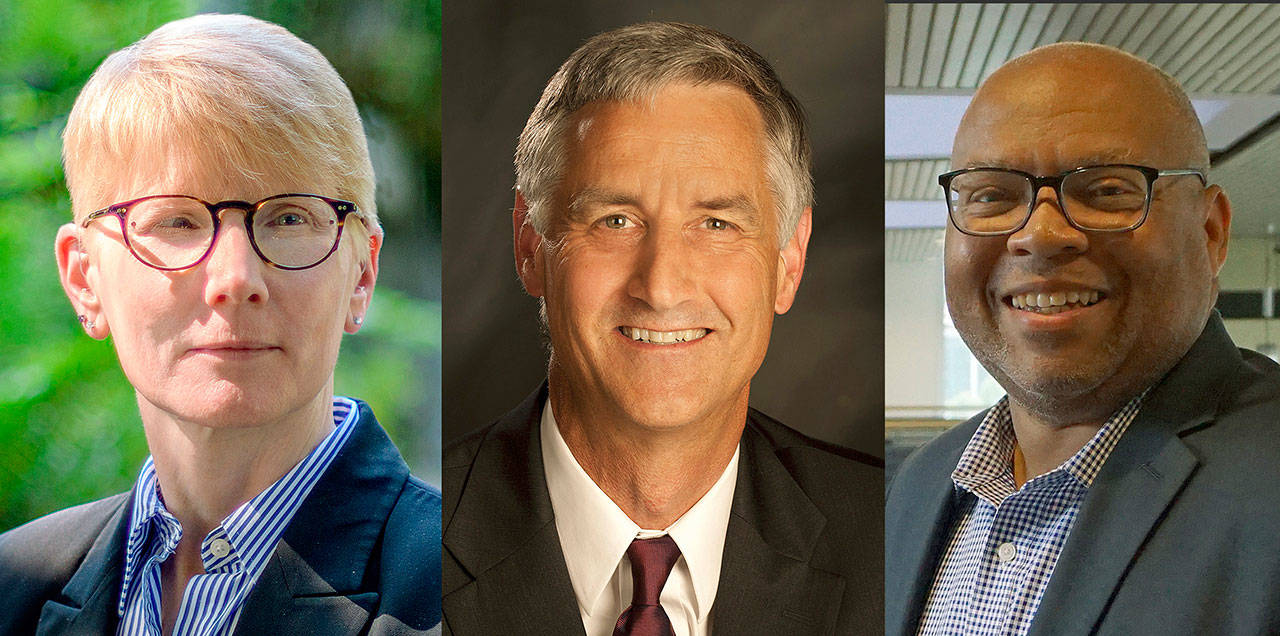By Suzanne M. Johnson, Kevin McCarthy and John R. Mosby, for the Reporter
Chances are that you or someone you know has studied at a community or technical college in South King County. Each year, some 45,000 students attend Green River, Highline and Renton Technical colleges. Our students go on to successful careers and contribute to the economy and their communities.
Our students have compelling stories about how having access to a nearby community or technical college changed their lives.
We’ll share just three.
Michael Farnum said Green River College helped him transition into civilian life and a new career after serving 23 years as a cavalry scout and drill sergeant in the U.S. Army.
“Green River introduced me to industry professionals, which allowed me to understand the trends, innovations and needs of the industries relevant to my career path,” Farnum said.
Upon completing his degree at Green River, Farnum transferred to Pacific Lutheran University, where he earned his bachelor’s degree in environment studies. In 2018, he received Green River’s Outstanding Alumni Award and is pursuing his masters of business administration at PLU.
Chalisa Thompson said Highline College “is about community and investing in the people that make up the community.” She credits Highline’s Umoja Black Scholars Program for helping her get back on track with her education.
Once she graduates in the spring, Thompson plans on transferring to the University of Washington for its social work program.
“My goal in life is to become the person that I didn’t have, but desperately needed,” Thompson said.
Jose May, a successful network engineer, said Renton Technical College set him on the path for success. After earning his GED, he transitioned into a computer science program.
“I came to RTC with a ninth-grade education,” he said. “RTC gave me everything. It’s life-changing, not only for the individual, but for the generations.”
Educating these students is not only important for them, but also critical for our communities. According to the Washington Roundtable, there will be 740,000 job openings in the state by 2021 and more than half will require education past high school. Rather than a four-year degree, many of these jobs require skilled workers who are educated at our community and technical colleges.
Our three institutions specialize in providing access to higher education to all South King County residents. But access alone is not enough.
Students like Farnum, Thompson and May must have the services, programs and financial support to help them succeed. In South King County, many of our students are immigrants, first-generation college students, or others who have faced obstacles to education and overcome adversity. Many need financial aid and other services, and it’s time the Legislature fully fund our community and technical colleges.
Last year, the Legislature took steps to begin to fully fund the State Need Grant by 2023. We encourage the Legislature to continue this momentum.
Community and technical colleges are also seeking investments in three other key areas for students: guided career pathways, training in high-demand careers and exceptional instruction.
The guided career pathways approach is a nationally recognized way to help students graduate on time and with purpose, saving them time and money in the process. The idea is to help students choose a course of study earlier and to organize classes in a way that makes it easy for them to take the right classes in the right order. Students work closely with advisers to identify how to reach their career goals.
When students have the support they need to pay for college and succeed in their studies, then we can collectively graduate more students who will fill the 740,000 projected job openings. A post-secondary credential provides access to economic mobility and family-wage jobs.
Our students will fill critical, in-demand positions in health care, information technology and many other fields. Our three institutions offer a wide range of programs to meet student interest and workforce demand.
We urge the Legislature to focus on funding education beyond high school for students like Farnum, Thompson and May. These students – and thousands like them – live in our communities. They will fill the jobs of tomorrow and contribute to our communities’ future. For the greater public good, let’s give them the support they need.
Suzanne M. Johnson is president of Green River College, founded in 1965; Kevin McCarthy is president of Renton Technical College, founded in 1941; and John R. Mosby is president of Highline College, founded in 1961.


